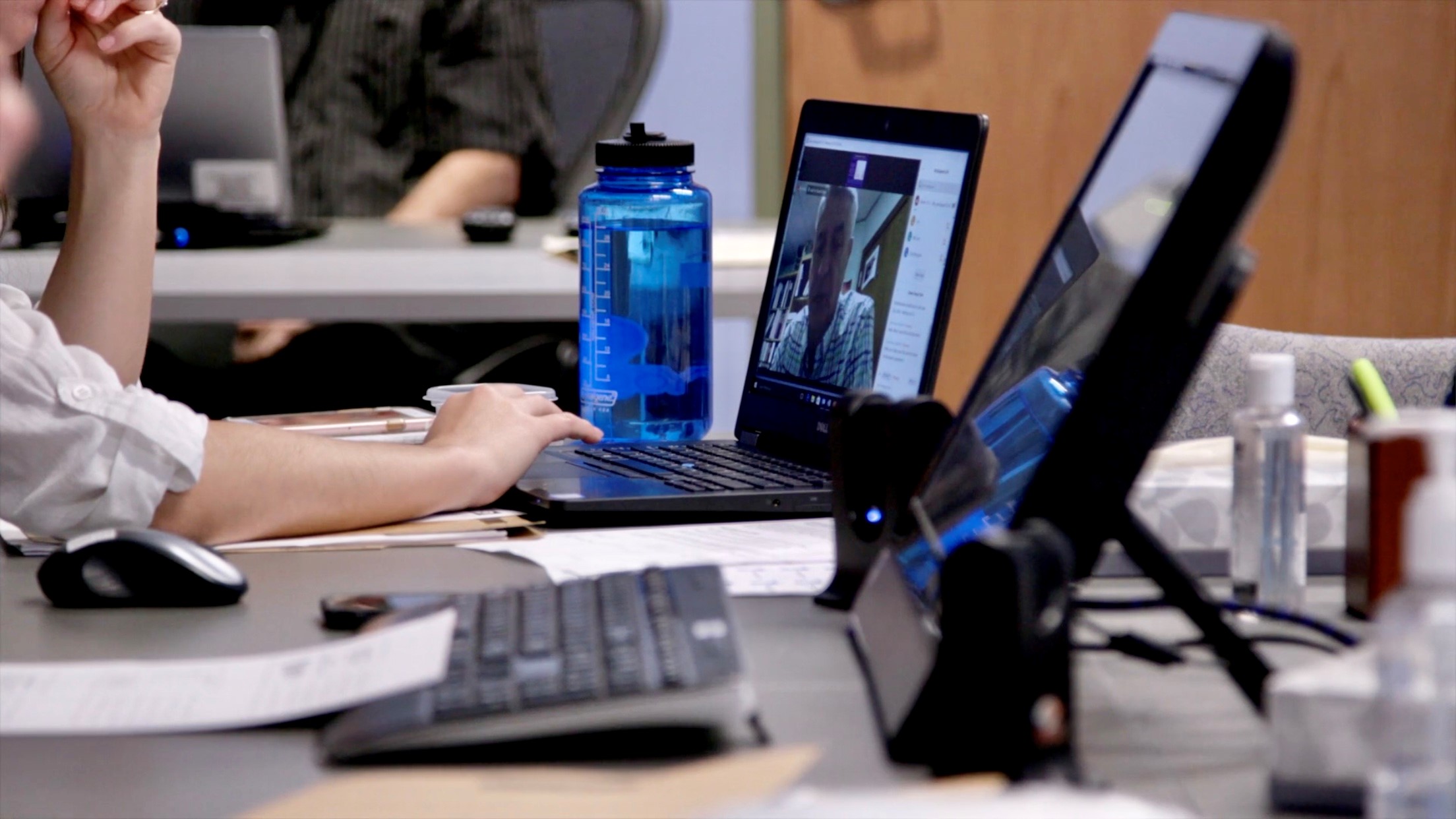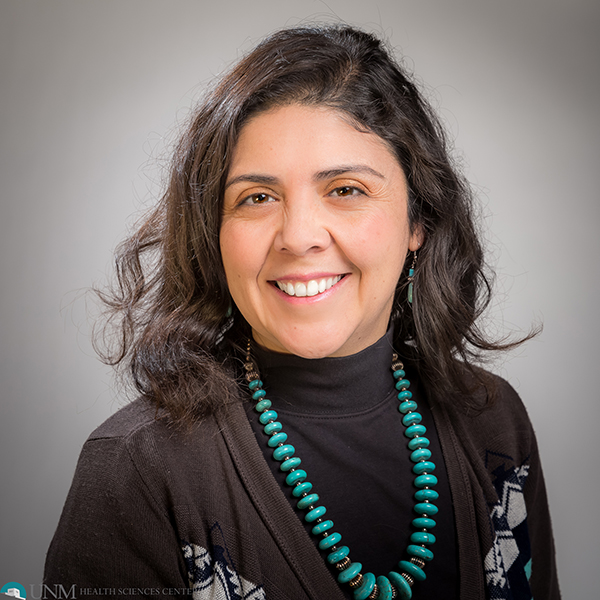Preparing for Disaster: UNM Hospital Participates in Region-Wide Emergency Training

Top Teacher
Dr. Felisha Rohan-Minjares Named UNM’s 2020-2021 Outstanding Teacher of the Year
Felisha Rohan-Minjares, MD, professor in The University of New Mexico Department of Family & Community Medicine and assistant dean for clinical education and learning environments, has been selected to receive UNM’s 2020-2021 Outstanding Teacher of the Year award.
The award recognizes the positive impact she has made on student learning, said Aeron Haynie, PhD, executive director of the UNM Center for Teaching and Learning, which oversaw the selection process.
“This is probably one of the biggest honors I’ve ever received – to be recognized by all of UNM for my teaching ability,” said Rohan-Minjares, who has had a longstanding interest in both medical student education and addressing the impact of racism on health. She will receive the award in a virtual ceremony at 3 p.m. on Friday, May 7.
“I could not be more proud, nor more excited than I am for Dr. Rohan-Minjares,” said Martha Cole McGrew, MD, interim dean of the UNM School of Medicine. “I have known her since she began her residency here in 2005. From Day One she has shown the qualities of an outstanding educator committed to high-quality education for our diverse medical student body. She truly embodies our school’s values.”
In a personal statement that accompanied her nomination, Rohan-Minjares told how she and a colleague rapidly created an entirely virtual course for medical students as the COVID-19 pandemic disrupted in-person instruction.
It combined large-group presentations, small-group work, reflective writing and service learning. Students organized personal protective equipment, and some developed the data dashboard that became UNM’s COVID data tracking system. Others created podcasts and parenting groups to support their colleagues during remote schooling of their children.

This is probably one of the biggest honors I’ve ever received – to be recognized by all of UNM for my teaching ability
“Leading this course was the experience of a lifetime,” she wrote. “It allowed me to contribute immensely as an educator and to truly see students evolve from being disappointed and afraid after their clinical education was disrupted to developing and leading impactful community service projects that made an immediate difference in the life of New Mexicans experiencing the pandemic.”
Later, in the wake of the George Floyd killing, Rohan-Minjares and her teaching partner, Jessica Goodkind, PhD, responded to the growing wave of protests by beefing up their anti-racism curriculum to guide new discussions on racism in medical education and taking on leadership of the School of Medicine’s Anti-Racism Curriculum Task Force. The pair were also invited to present their curriculum at the Paul L. Foster School of Medicine at the Texas Tech University Health Sciences Center at El Paso.
Rohan-Minjares grew up in Gallup, a railroad town in western New Mexico bordering on the Navajo Nation. Her mother’s family had lived there for several generations, while her father came to the area as a teenager from the Mexican state of Chihuahua.
She was valedictorian of her graduating class at Gallup High School in 1996 and attended Notre Dame University, where she majored in both premed and government. She completed medical school at Stanford University before returning to New Mexico for her family medicine residency – where she discovered a passion for teaching.
“It’s the reason I stayed on at UNM after my residency,” she said. “I saw the impact I could have on generations of doctors.”
When Rohan-Minjares joined the School of Medicine faculty in 2008, McGrew, then chair of Family & Community Medicine, recruited her to develop a culturally effective care curriculum for medical students. She sees patients and teaches students and residents at the UNM North Valley Clinic.
“I am grateful for my experience in teaching and curriculum design and implementation over the years at the medical school,” she said in her statement. “I have heavily had to rely on these skills during the pandemic to adapt my own teaching and help other educators as we all did our best to continue to move medical students along on their educational journey.”